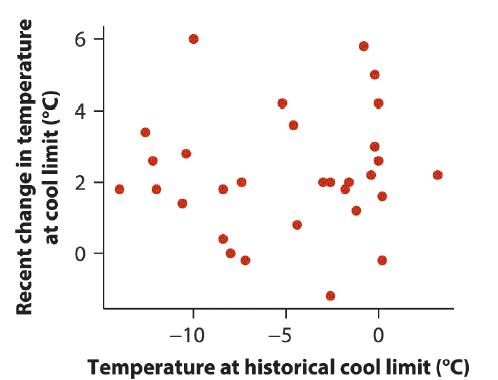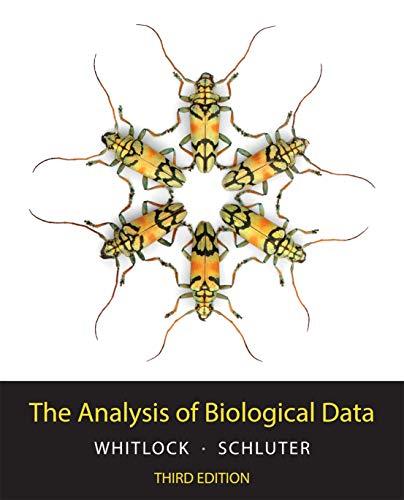Species that depend on specific thermal environments might be expected to shift their geographic ranges northward and
Question:
Species that depend on specific thermal environments might be expected to shift their geographic ranges northward and uphill as the world gets warmer, to track the temperatures that are best for them. If this temperature tracking occurs, then temperatures at the cool limit of a species’ geographic range should not change over time as temperatures rise. (The cool limit is usually the northern limit of a species’ geographic range and is thought to correspond to a temperature below which it is too cold for the species to inhabit.) Kerr et al. (2015) gathered information on the ambient temperature at northern range limits of 67 bumblebee species over time. X is the temperature at the historical cool limit of bee ranges, before range shifts started to happen. Y is the change in the ambient temperature between the modern cool range limit and the historical cool range limit. (A positive value means that the species’ range has not shifted northward quickly enough to track cool temperatures.) Assume that bee species data are independent. Summary statistics are below. The full data set is available at whitlockschluter3e.zoology.ubc.ca.


a. Using these data, calculate the linear regression that best predicts the change in cool limit temperature shift from the historical limit for these data.
b. Does the historical temperature at the range edge predict the change in the temperature at the edge? Carry out an appropriate hypothesis test and interpret the results.
c. What are your assumptions in parts (a) and (b)?
d. What is the main procedure you would employ to evaluate those assumptions?
Step by Step Answer:

The Analysis Of Biological Data
ISBN: 9781319226237
3rd Edition
Authors: Michael C. Whitlock, Dolph Schluter





